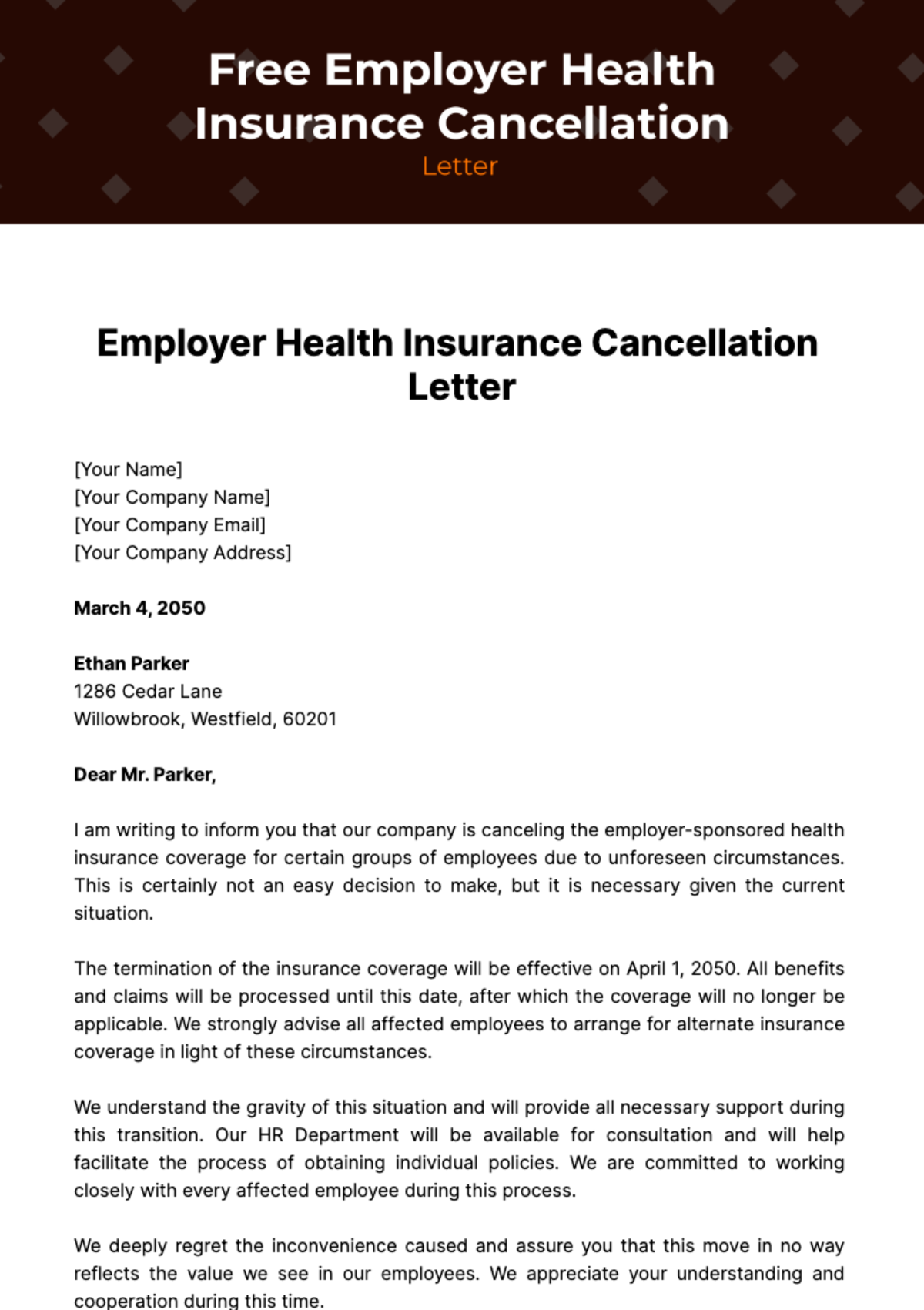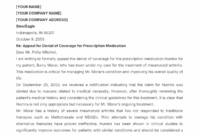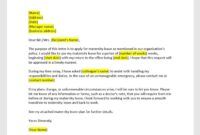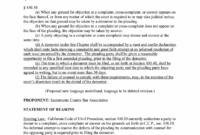Navigating the complexities of health insurance can sometimes feel like a maze, and there might come a point where you need to cancel your current policy. Whether you’ve found a new plan, experienced a life change, or are simply looking for different coverage, the process of formally ending your existing health insurance requires careful attention. You’ll want to ensure a smooth transition without any gaps in coverage or unexpected billing issues.
Taking the right steps, including submitting a formal letter, is crucial for a clean break from your old plan. This isn’t just about notifying your insurer; it’s about creating a clear, documented record of your request. A well-crafted health insurance cancellation letter template can be an invaluable tool to guide you through this process, ensuring all necessary information is included and your request is handled efficiently.
Why You Might Need to Cancel Your Health Insurance
Life is full of changes, and your health insurance needs often change right along with it. One of the most common reasons individuals decide to cancel their current health insurance policy is securing a new job that offers a more comprehensive or employer-subsidized health benefits package. This often means better coverage at a lower out-of-pocket cost, making the old plan redundant and expensive to maintain.
Another frequent scenario involves relocating. If you move to a new state or even a different region within the same state, your current health insurance plan might not offer in-network providers or adequate coverage in your new area. In such cases, switching to a local plan becomes essential to ensure continued access to medical care without facing steep out-of-network charges. Finding a more affordable or suitable plan through the marketplace or a private insurer is also a strong motivator. The market for health insurance is dynamic, and new options that better fit your budget or specific health needs can emerge, prompting a change.
Furthermore, reaching certain milestones can trigger a need to cancel an existing policy. For instance, becoming eligible for Medicare when you turn 65, or qualifying for Medicaid due to a change in income or household status, means you’ll transition to government-sponsored programs. These events necessitate ending your private health insurance to avoid overlapping coverage and potential billing confusion. Similarly, significant life events like marriage, divorce, or the birth of a child can alter your family’s coverage requirements, leading to the need to adjust or cancel individual policies in favor of a family plan.

Key Considerations Before Cancelling
- Always confirm the effective date of your new health insurance coverage before initiating the cancellation of your old plan to prevent any gaps in protection.
- Understand any potential penalties, fees, or waiting periods associated with cancelling your current policy early or enrolling in a new one.
- Review your current plan’s specific cancellation policy and required notification period.
- If you’re transitioning from employer-sponsored coverage, research COBRA options to understand your rights for temporary continued coverage.
Crafting Your Health Insurance Cancellation Letter
When it comes to cancelling something as important as your health insurance, clarity and professionalism are paramount. Your cancellation letter serves as an official document, so it needs to be precise and contain all the information necessary for your insurer to process your request without delay. Think of it as a formal notification that leaves no room for misunderstanding about your intentions.
The most crucial elements to include are your personal identifying information, such as your full name, address, and contact details, alongside your specific health insurance policy number. This policy number is vital as it allows the insurer to quickly locate your account and apply the cancellation to the correct policy. You’ll also need to clearly state the exact effective date of cancellation, ensuring there’s no ambiguity about when you wish your coverage to end.
Beyond the basic details, it’s highly recommended to include a polite but firm statement of your intent to cancel. While you don’t necessarily need to provide a detailed reason, a brief explanation can sometimes be helpful. Most importantly, you should explicitly request written confirmation of your policy’s cancellation. This confirmation, often sent as a letter or email, acts as your proof that the request was received and processed, safeguarding you against future billing disputes or claims of continued coverage.
Once your letter is drafted, consider how you will send it. While email can be convenient, sending the letter via certified mail with a return receipt requested provides undeniable proof that your letter was sent and received by the insurance company. This extra step offers peace of mind and a tangible record, which can be invaluable if any questions arise later. Always keep a copy of the signed letter and any mailing receipts or email confirmations for your personal records, ensuring you have your own documentation of the entire process.
Your health insurance cancellation letter template is more than just a formality; it’s a vital part of responsibly managing your healthcare coverage. By following these steps and ensuring your letter is complete and properly delivered, you’re taking control of your insurance journey. This meticulous approach helps prevent any unexpected issues, allowing you to move forward confidently with your new or adjusted health coverage arrangements.



